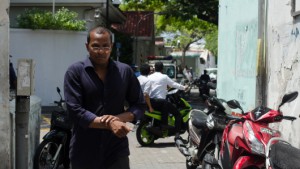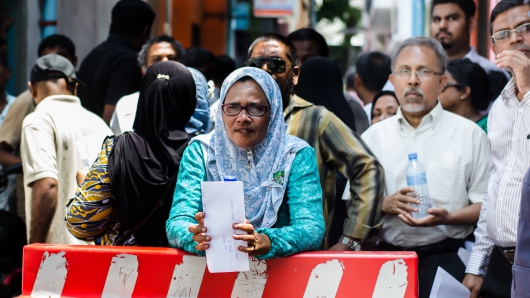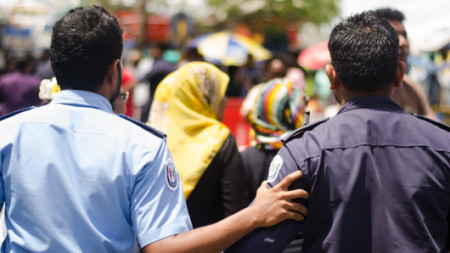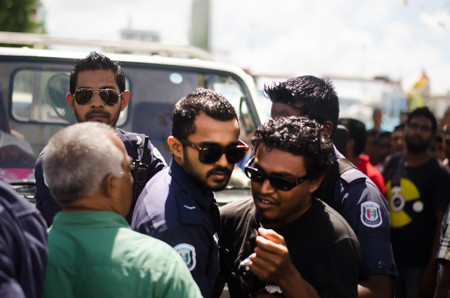Hundreds of opposition Maldivian Democratic Party (MDP) supporters today urged Criminal Court Chief Judge Abdulla Mohamed to release a transcript of court proceedings necessary for the appeal of former President Mohamed Nasheed’s 13-year jail sentence.
In a letter to Judge Abdulla, over a hundred signatories noted the ten-day appeal period would expire on Monday, March 23, and urged the court to release court proceedings without further delay.
The High Court subsequently informed Nasheed’s lawyers that the appeal period would expire on March 26 (Thursday).
Nasheed was convicted of terrorism on March 13 over the January 2012 military detention of Judge Abdulla in a trial many international and domestic observers called a “travesty of justice.”
The UN High Commissioner for Human Rights Zeid Ra’ad Al Hussein and the UN Special Rapporteur on Independence of Lawyers and Judges Gabriela Knaul last week urged the Maldives to guarantee that Nasheed’s appeal would respect the most stringent fair trial standards and observe due process.
Speaking to Minivan News today, Nasheed’s lawyer, Hassan Latheef, said the Criminal Court had only provided a summary of the judgment, and said the full court proceedings were necessary for a strong appeal.
Latheef said the High Court’s decision to discount weekends in the new appeal period demonstrated the judiciary’s extraordinary treatment of Nasheed’s case.
The Supreme Court in January issued new regulations reducing the maximum period of appeal from 90 days to ten days. On March 5, in an announcement online, the Supreme Court said the ten day appeal did not include weekends or the day the verdict was issued.
The MDP has previously accused the Criminal Court of deliberately thwarting Nasheed’s attempts to launch an appeal. Meanwhile, the legal team in a statement last week noted the Criminal Court contravened the Supreme Court’s appeal regulations by providing the judgment summary a week late.
Speaking to Minivan News today, MDP MP Eva Abdulla said the possibility of the judiciary providing Nasheed adequate time to prepare an appeal seemed “unlikely, to say the least.”
Eva, MDP MP Ahmed Falah and Independent MP Ahmed Mahloof led the group delivering the letters to the Criminal Court. The crowd set out from the MDP offices towards the Criminal Court at noon, but were blocked at the President’s Office and the Supreme Court.

Police detained Falah in a scuffle near the President’s Office. He was handcuffed and taken to the Police HQ, but was immediately released.
When the group reached the Criminal Court, they were pushed behind barricades in a narrow alleyway and police escorted each letter bearer separately into the Justice Building.
After submitting his letter, 27-year-old Shammoon Jaleel said he did not believe justice was possible in the Maldives at present and he had also put a suggestion into a suggestion box at the Criminal Court asking the judiciary to “tear down the justice building and build a park there.”
Shimla Adam, 45, pointed out Nasheed’s legal team did not have enough time to review court proceedings and lodge an appeal even if the Criminal Court provided the report today.
“I do not think President Nasheed will get any justice. I have no hope of things getting better in this country,” she said.
President Abdulla Yameen has previously called on all parties to respect the Criminal Court’s verdict, stating Nasheed had “a constitutionally guaranteed right of appeal” to challenge his conviction on terrorism charges at the High Court.
UN rights experts Knaul and Zeid have called on the Maldives to allow international observers including jurists to attend Nasheed’s appeal hearings.
This article was amended to include a statement by the Supreme Court which said the appeal deadline does not include weekends or the day a verdict is issued.


